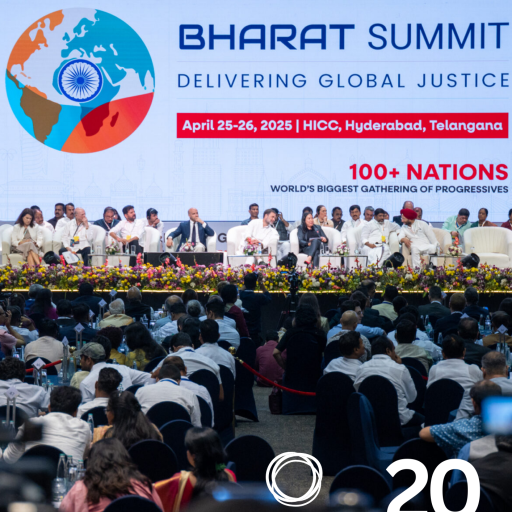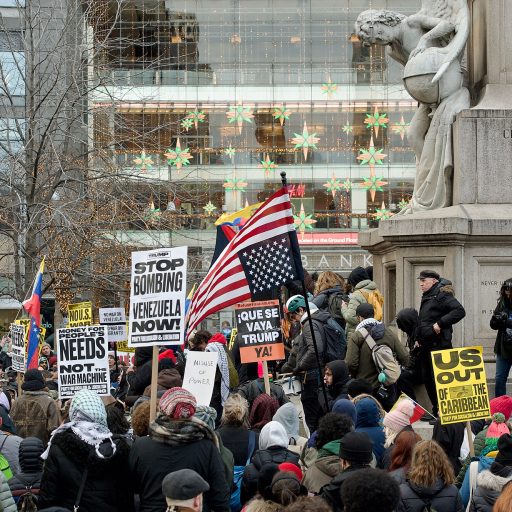More than a year into the Coronavirus Pandemic, the world continues to endure the multiple crises this has created alongside pre-existing ones such as the climate crises and inequality. Existing inequalities between and within countries have only served to disproportionately favor the wealth and powerful over poorer and marginalized communities and individuals in terms of accessing and receiving health services, treatment, and vaccinations.
While nations in the Global North have been the main recipients of the bulk of vaccine supplies, countries in the Global South have had to rely on the few vaccine that are able to be sent their way while many other poor countries have yet to even receive a single dose of a vaccine. This must be corrected immediately or else we risk prolonging this pandemic further and risk the collapse of health systems of less developed countries.
Sufficient funding and fairer distribution
We must also desist from the rhetoric of vaccine nationalism that has become more and more common among the political leaders of the developed nations. In this time of crises, humanity cannot afford to let such divisive rhetoric derail our collective efforts to overcome this pandemic. Now, the times call for greater renewal and greater solidarity. Vaccine solidarity, not vaccine nationalism, is needed. The COVID-19 Vaccines Global Access, better known as COVAX, is such a multinational effort to address to ensure the fair distribution of vaccines. But it is clear that even such an effort can only do so much with funding and supply still at insufficient levels to meet the huge demand for vaccines.
With such bottlenecks it is necessary for the international community to increase funding for COVAX alongside efforts to increase the supply of vaccines. Countries with the resources and ability to contribute to COVAX funding must do so that we can finally see a clear end to the pandemic. Also, supplies can be greatly increased if vaccine licenses are shared to allow manufacturers especially from the Global South to produce vaccines. It is also necessary to ensure transfer of technology and binding obligation for partnerships with manufacturers for future vaccine supply contracts.
Multilateral agreements at the level of the World Trade Organization must also be forged to prevent administrative hurdles to the distribution of vaccines and to prevent stockpiling of vaccines. Likewise, a limited waiver on patents should be pursued to prevent possible disputes arising from conflicts related to intellectual property. The international community must make clear that people’s health must be the top priority over and above demands for profit-making.
Governments must also ensure access to vaccines for poor and marginalized sectors of society. Health workers and other workers who are most at risk must also be prioritized to received vaccinations and health services to ensure their safety. Our workers and medical professionals deserve to have comprehensive protection and safeguards as we continue to rely on them to stave off the spread of the virus and prevent further downturn in our economies.
Greater international cooperation, solidarity, and social investments
It is necessary to reform the global international order for the purpose the common challenges that face humanity. This pandemic being one of those challenges, has highlighted the extreme disparities in access to health services and medicine that have existed even before this pandemic. Clearly, this problem we face globally need solutions that can only be executed and coordinated with stronger cooperation among peoples and countries.
To reiterate, we must push through with the following policies in order to expedite the global response to the pandemic and to allow countries to be able to start the process of recover and building a just and democratic normal for all:
1. Global solidarity and global partnership for greater vaccine production and distribution and shunning vaccine nationalism. In the immediate, there must exist a binding obligation for partnerships and building production capacities with manufactures in developing countries in all vaccine supply contracts with manufactures by industrialized countries. This also means that Industrialized countries should supply the Global South with doses from their overcapacities.
In the long term, we must promote a new era of health internationalism among nations with the end goal of providing health services to all people and capacitating their communities to provide such services to their own constituencies. We must reject vaccine nationalism because it endangers prolonging this health crisis and it only serves to entrench existing disparities and inequalities between the Global North and the Global South.
2. Emphasizing that health services, treatment, and vaccines as public goods. It is necessary that we ensure that COVID-19-vaccines (and all health services) are viewed as public good and not simple commodities that are determined by market forces. This entails that we ensure accessibility to vaccines for all, in particular for vulnerable people, frontline workers and healthcare workers worldwide and in particular in the Global South.
3. Greater accessibility and production, removing barriers to delivery of vaccines and essential medical supplies. It is also necessary that we revisit existing agreements on patents and licensing with the end goal of increasing the production of vaccines and other health-related materials. Such efforts can take in the form of reassessing the TRIPS Agreement (Agreement on Trade-Related Aspects of Intellectual Property Rights) and exploring ways to enable technology transfer among countries. We must also reject all contractual agreements limiting exports, sharing, and donations of vaccines in order to allow for fairer distribution. The obligation of vaccine manufacturers, laboratories and producers to sell their products to the Global South and to COVAX at the cost price only and to allow licensing at low cost.
4. Public financing for health from taxes on wealthy. To fund the expansion of health services it is necessary that we introduce wealth and financial transaction tax schemes. In the immediate we must ensure that such taxes to close the gap in funding for COVAX. Long term, this must serve as a starting point for introducing new taxes on wealth which will ensure that our public health institutions are properly funded and our health workers are properly compensated and protected.
5. Promoting new advancement in health research especially in the Global South. Increasing investments in medical research and public health systems especially in the Global South. This will entail governments in the Global South to start or improve production capacities to free them from overdependence on importation for medical supplies from a few countries. Moreover, this will also entail greater support for medical research. This will also entail forging partnerships between nations in the Global North and Global South (South-South partnerships) for research and sharing of knowledge in preparation for future threats of new outbreaks and health crises. Such partnerships will ensure faster responses against future health threats.
The pandemic has highlighted that a renewed sense of internationalism between developed and developing nations, between the Global North and the Global South is central to a quick end to the pandemic and end to humanity’s suffering. Acts by some governments and world leaders to go their own way or disengage from international cooperation have led to disastrous consequences. We cannot allow that to happen. We must create a new era for global cooperation and health internationalism that ensures advances in health and medical research and technology can be shared and enjoyed by all.
This also puts into a spotlight the lack of investments in healthcare and social services brought about by years of neglect and neoliberal austerity measures. We cannot allow the same old policies to return. Alongside our call for renewed internationalism is the emphasis on an increase in public investments in health and social services.
Only through such a global, coordinated effort and greater state support will we be able to see the light at the end of the tunnel. The window of time for building our just and fair new normal is brief and the tendency to return to old ways is ever present. As progressives, we must therefore act fast to push the world towards a more just and equitable future. #
Original Publication: https://socdemasia.com/news-items/38-latest/259-towards-a-global-vaccine-solidarity-and-health-internationalism





![Headline: Hier bitte das Thema [ Headline] 24.10.25, Lucerne, Switzerland, Progressive Alliance PA women conference](https://progressive-alliance.info/wp-content/uploads/elementor/thumbs/MAW251024mw859033AdobeRGB-scaled-recq0qxu9kb6pncdi2i7wo6ttne03ppnu58zxxdc74.jpg)
![Headline: Hier bitte das Thema [ Headline] 25.10.25, Lucerne, Switzerland, Progressive Alliance PA women conference](https://progressive-alliance.info/wp-content/uploads/elementor/thumbs/MAW251025mw860402AdobeRGB-scaled-recs8kegm3kqlleif2kq512xsjz2qfl3t7kc0t0tts.jpg)